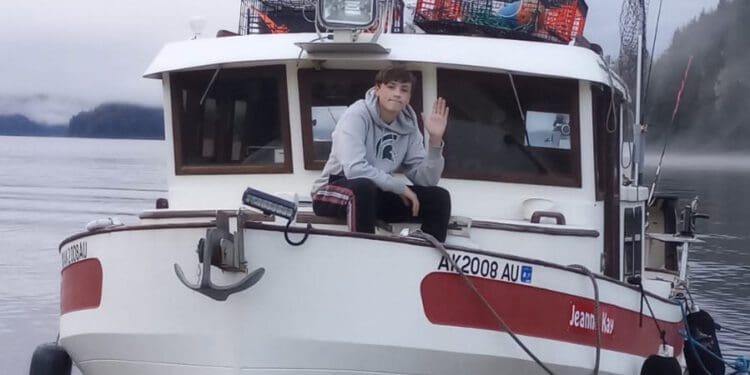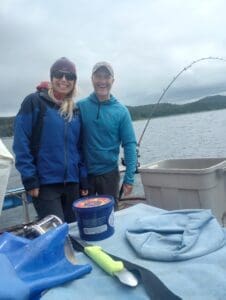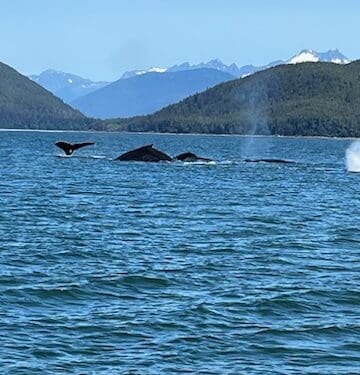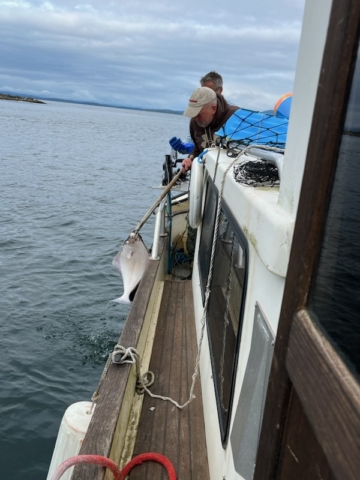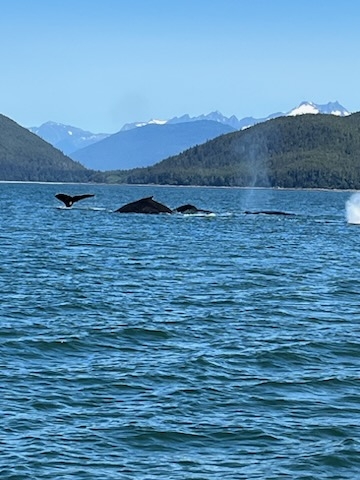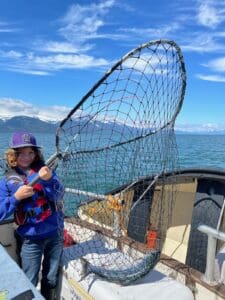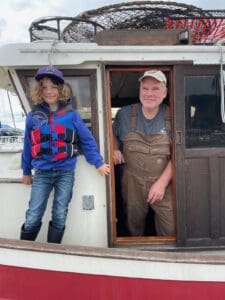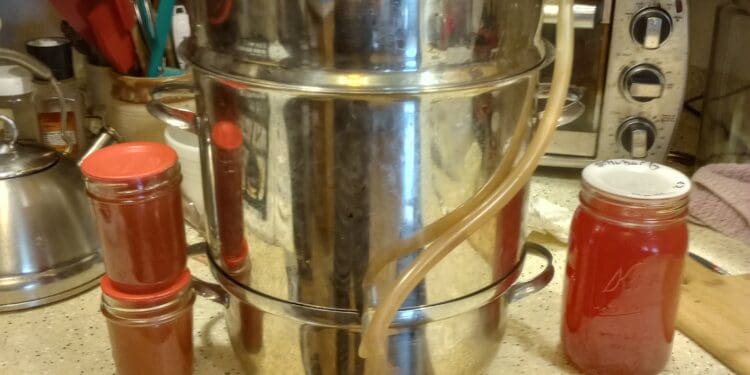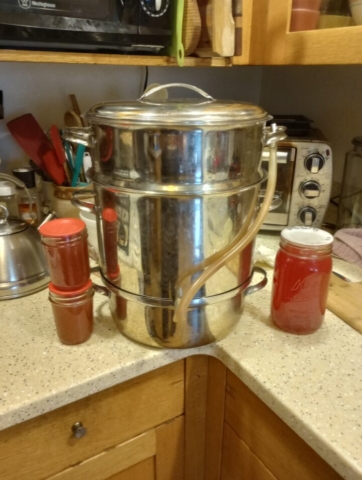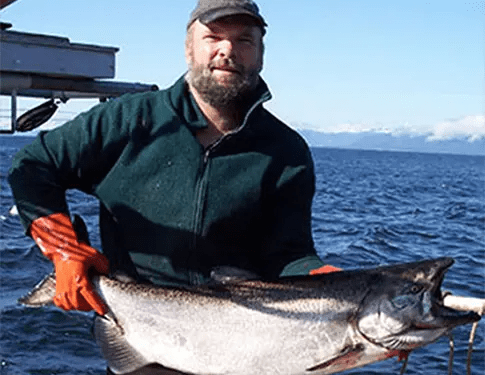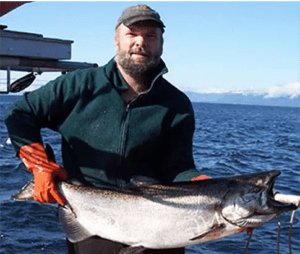My 14 year old nephew arrived for his 3rd consecutive year. He’d come for a week or 10 days before. He asked for 2 weeks this time! A glutton for punishment, he is.
We headed out the day after he arrived, starting at Pt Retreat in Lynn Canal and fishing our way south. We caught some smaller coho. I noticed that the coho that had anything in their bellies had herring, and not krill or needlefish. So I switched from flashers and hootchies to King Kandy and caught 2 big cohos at Funter Bay. We set dungy and king crab pots in Funter Bay, tied up to the dock, and processed our catch.
On day 2, we had one big dungeness crab, my nephew’s favorite, and some undersized king crab. We across Lynn Canal to the Clover Islands to try there. We caught a coho and lost two, then caught a nice king an hour later. The king kandy lures were doing what we wanted – not catching pinks and catching larger cohos and even a nice king.
We continued around the corner at Point Couverdon and on out Icy Strait. We caught 4 coho, a king and a pink for the day. I decided we’d need to shake pinks now or run out of freezer space on the boat. We processed our fish, and got into a daily routine. I would fillet and portion the fish, and my nephew would double rinse the portions, then wrap the fish in plastic wrap. I’d then place then on racks I recently built for the freezer out of coated mesh wire, and they worked great to keep the fish separated so it would freeze properly. We anchored at porpoise islands and went to the beach to explore and get some exercise. Eaton was starting to see a daily pattern now. We are gonna limit our daily catch to 5 or 6 fish and beach comb the rest of the day so we have freezer space when Eaton’s dad gets here.
On day 3, we fished Pleasant Island, a brand new spot for me. I caught 3 on the Pleasant Island side of the reef while the nephew slept. All decent sized cohos on king kandy. Next we went to Point Adolphus and got one right away. There were about 10 whale watch boats out of Hoonah there; when I trolled here 25 years ago, it would be just me and the whales. We decided we weren’t going to go to the outer coast, and we ran to Hoonah to tie up for the night. I suspect my nephew is going through withdrawals without cell service as his provider Verizon doesn’t work out in Icy Strait, and that was part of his reason for wanting to return to Juneau for awhile before his dad arrived. I walked up to the Hoonah store while the nephew watched a movie maybe too mature for him, but that’s what uncles are for.
The corvids are my favorite. On my walk to the store, there was a raven sitting atop a little stone chimney top that was coming out of a little old house above the harbor. It was croaking and , it seemed, enjoying the amplification the chimney gave to its song. It also seems a little more like a religious event seeing a raven in a Tlingit village. Like it’s a member of the town.
On day 4 we planned to fish the mainland around to Couverdon and tie up there. We caught 3 coho, then the wind came up and we couldn’t get to Couverdon in the heavy seas. We headed out Icy Strait with the wind, looking for an anchorage. We wandered around the Porpoise Islands and the east side of Pleasant Island and could not find an anchorage out of the wind, so we went to the Excursion Inlet dock. This was my first time here. After a short rest at the dock, we set a halibut skate and crab pot up the inlet. I had my nephew practice docking the boat on the empty dock when we returned. After pouring rain and rough seas all day, the evening was calm and the sun came out. We walked around the mothballed Excursion Inlet cannery compound, which was in well kept condition at 116 years old. There were free bikes to ride around on, a little apiary, and a little museum, which was locked so we looked through the windows. A big doe deer let us walk right by her.
On the morning of day 5, I was surprised to find the boat battery still on full charge, even with Eaton having watched a movie and the freezer on full time. I think since the freezer is mostly full now, the thermal mass is keeping the freezer cold, and it has to work less. I learn something every trip. I’ll try to collect a bunch of large plastic containers like milk jugs or the big pop bottles to fill with water and freeze to keep in the freezer. I can remove them as fish takes their place, and we’ll see if that’s less stress on the dc system.
We fished at Couverdon for an hour where we had caught a few nice coho, but no luck. We snuck across north Chatham Strait to Admiralty in the calm seas. We fished from Lizard Head up to Funter, and only had one coho on, which was lost at the boat. We decided with the fair seas and poor fishing to head to town, and arrived in Auke Bay in the evening, where Sara picked us up. We’ll relax for a couple days til my brother in law arrives, then do it all over again.

